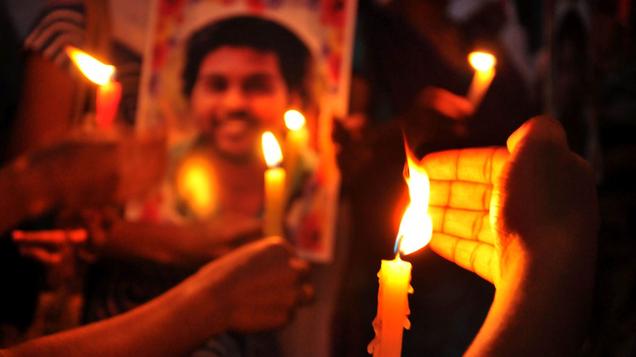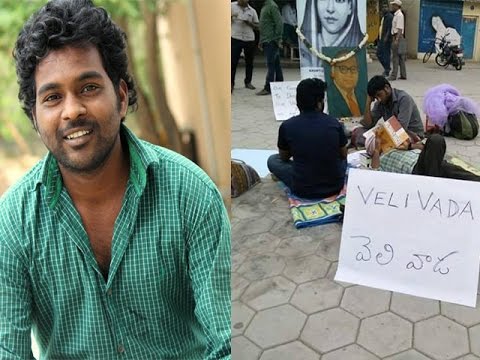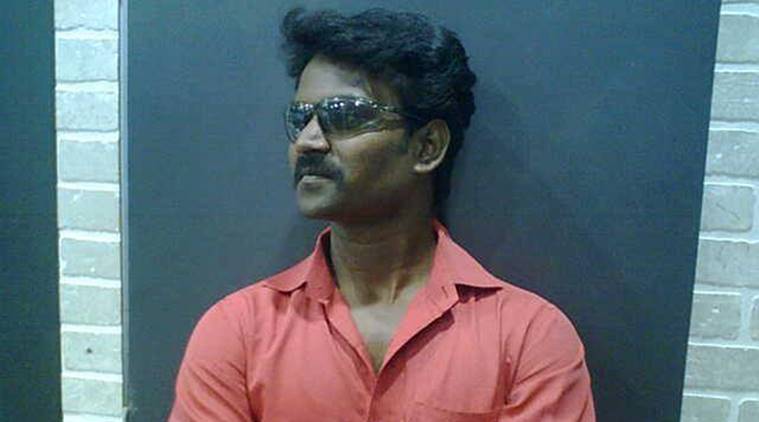
It would not be an exaggeration if the singular exceptionality[1] of the figure ‘Rohith Vemula’ amounts to a turning point in the history of the social justice movement in India. The intensity and implication of such an effect produce global solidarity on the issue of caste discrimination and the exclusion of Dalits in higher education. It gets articulated in social protests, popular culture, political narratives, and academic discussions in different spaces, ranging from academic journals and parliamentary debates to the everyday public sphere. This defines one end of the spectrum of Rohith’s Afterlife. The other end, however, is characterized by a never-ending saga of humiliation based on identity and injustice.
The recent closure report filed by Telangana police imbibed sheer humiliation of Rohith’s identity (it engrossed itself in proving whether Rohith is a Schedule Caste person or not) and it was ridden with gross injustice as it did not hold accountable his killers (people compelled him to take the extreme step, suicide). Though the report was later recalled due to a massive public outcry from different spheres, several questions remain unanswered: Why is Telangana police staying away from holding Rohith’s killers (people forced him into a suicide) accountable? Why don’t they acknowledge the social that is inherent in his death? Why do they draw haste conclusions, as is evident from the closure report? Four grounds need to be discerned in this regard: First, logical fallacy in the causal explanation of the event. Second, biases in the treatment of testimonies as a form of evidence. Third, approaching Rohith’s letters and the suicide note as akin to a court statement/judgment to make inferences without sensibly understanding the intentionality and gravity that underlie as they attend to address a social question. Fourth, to exacerbate such biases by using the suicide note as a tool for victim blaming and personalizing the issue, which suspects the validity of the political effect it produced across the globe.
The explanation used in the closure report by the police turns out to be extremely casual and is ignorant of the logical sequence of events that led to Rohit’s suicide. The evidence of fact was overlooked, which suggests a possible direct external political interference in the case. The sequence of events that occurred prior to Rohit’s death, as evidenced by the report, are: 1. local MLC, Sri. Ramchander Rao visits the Vice Chancellor in person on behalf of ABVP (the right-wing student organization) 2. B. Dattatreya, the then Member of Parliament and Minister of State for Labour and Employment, Govt of India, addresses a letter to the M.H.R.D., which gets forwarded to the Vice-Chancellor, in the guise of highlighting what he terms as the casteist, extremist, and anti-national politics by the activists of Ambedkar Students’ Association in HCU (an anti-caste student group). He also calls for action against the activists of ASA in HCU. Despite these facts being evinced in the report, the conclusion has been drawn that ‘no political inference’ was present in the whole case. This is solely based on the VC’s testimony, whereas all the other evidence points to the contrary. The verbal statement of VC about not having political inference proves weak, especially when the university’s own decision-making body acknowledged its official presence in the 167th Executive Council meeting on 27-11-2015.[2]
While VC testimony is valued over other contradicting pieces of evidence in establishing the point of no political intervention, the closure report does not give similar or even comparable importance and recourse to the testimonies and subjective experiences of Radhika Vemula and Rohith Vemula in determining caste status of Rohith Vemula. Radhika Vemula’s Dalit identity, Rohit’s assertion of dalitness, and the subjective experiences of the mother-son duo for decades did not find any place in the report where these experiences are the essence of the constitutional category of ‘Scheduled Caste’ as defined by the Indian Constitution. While grossly disregarding both subjective and objective evidence, an investigating police officer had the audacity to suggest Radhika Vemula do a DNA test to verify her caste status against her claim of Dalithood.[3]
The biasness becomes sharply visible in the police’ evaluation of Rohith’s letters to the administration and his suicide note. First, the evaluation process seems to have used what was not written as a source of evidence without making any fundamental difference between a letter written to the university administration (which Rohith did) and his suicide note. These documents are treated as if they are akin to a court statement. A court statement or the judgment- in instances of common law practices is taken to be final and also used as a precedence for other cases. Using a logic that equates a letter or suicide note to such judgments, the police, while drafting their closure report, apparently treated and even utilized formalities used in the suicide note to give clean cheat to those who are directly responsible for his death. Second, it personalized what is written by refusing to read the social that is inherent in it and shifting the onus to the person through victim blaming.
The anger represented in the Rohith Vemula letter addressed to the VC does not get serious consideration for directing the investigation process. In his repeated letters to the VC, Rohith goes to the extent of suggesting the administration to arrange suicidal equipment necessary for Dalit students like him as a solution to the Dalit problem on the HCU campus. The closure report, while mentioning the presence of anger in these letters, also concluded that it did not lead to the act of suicide, citing the reason for the time period for those letters and the date of his suicide. Further, it used the suicide note to construct a theory that anger has been melted in the air because it is not mentioned in the last letter of Rohith Vemula while conveniently ignoring intentionality and addressee in the last letter. The different committees that the HCU administration constituted to deal with the ongoing conflicts between ABVP and ASA awarded the suspension of five ASA activists, including Rohit Vemula. This prompted Rohit to express his discontent in the letters to the administration, a fact that has been effectively sidelined.
Subscribe to Our Newsletter
Get the latest CounterCurrents updates delivered straight to your inbox.
Citing Rohith’s letter addressed to VC, the closure report has the following inference;
“If examined whether this (Rohith’s mentioning of why the university should serve poison and ropes to Dalit students like him) can be an indication for his suicide, this letter was written a month in advance and the disappointment, anger with which it might have been written must died down with lapse of time. It is pertinent to note that the deceased did not refer to any of the issues raised by him in his letter to the Vice Chancellor. Thus, it appears he has got reasons which are entirely different to what he has written in his letter Dt. 18.12.2015.”
This inference takes a callous approach to the social question in India. The idea that Rohith decided not to accuse anyone in his suicide note does not mean that his death hasn’t resulted from the series of events that culminated in his suicide. What may seem as an insensitive handling of sensitive material by the Telangana police in dictating the terms of how a person should write before the act of killing himself subtly denies the person’s last act of being heard in their own terms. It also ends up doing what we may usually term as victim-blaming by putting the onus of death on the deceased and making it their responsibility for mentioning the culprit in order to get justice. The closure report of the police in its attempt to push the onus of Rohit’s death onto himself, makes a failed attempt at constructing the concept of the ‘lack of anger’ aspect in his suicide note, which puts the quality of the investigation in question. The report has been recalled at the moment by Telangana police only after a huge public outcry; however, a callous and negligent approach in handling the case may not bring a positive result. The current Telangana government is run by the Indian National Congress Party; if it claims to side with India’s oppressed, it should rather opt for a proper judicial inquiry into the matter and make sure that they don’t perpetuate this saga of humiliation in Rohith’s afterlife.
Akash Sulochana, PhD Scholar at the Department of Sociology, University of Hyderabad
I acknowledge Manohar Boda, a research scholar at Rutgers University-New Brunswick-USA, for providing essential insights into the development of this piece.
References
Choudhury, S. (2018). Ambedkar and other immortals: an untouchable research programme. Navayana Publishing Pvt Ltd.
Teltumbade (2017). Robbing rohith of his dalitness. Economic and political weekly, 52(9), 10-11.
[1]. Choudhari (2018) first used this phrase to grasp the significance and effect of Dr Babasaheb Ambedkar’s singular exceptionality.
[2] For more reference to the ‘external interference’ in the 167th Executive Council meeting, see https://en.themooknayak.com/education/rohith-vemula-case-from-campus-protests-to-assurance-from-the-cm-for-justice-read-what-has-followed-since-the-reveal-of-closure-report
[3] Many articles rightly pointed out the objective evidence proving the Scheduled Caste status of Rohith Vemula and his family. In addition, what I wish to highlight is agential capability of subject and their subjective testimonies which underscore their everyday caste discrimination and humiliation which should be acknowledge and respected in the legal consideration of such matter. For more discussion, see Teltumbade (2017)














































